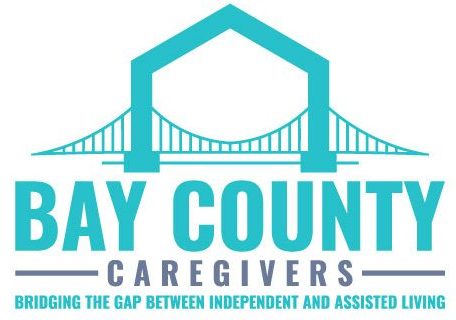When Is It Time to Hire a Caregiver?

Deciding when to hire a caregiver for a loved one is often a challenging and deeply personal decision. It can involve balancing emotional, practical, and financial considerations. Here are some key signs that it may be time to consider hiring a caregiver:
1. Difficulties with Daily Activities
• Basic Tasks: If your loved one struggles with essential tasks like bathing, dressing, grooming, or eating, it may be time to consider help.
• Mobility Issues: If they have difficulty moving around the house or risk falling frequently, this is another indicator.
• Household Management: Inability to manage chores like cooking, cleaning, and grocery shopping can signal the need for assistance.
2. Memory Loss and Cognitive Decline
• Dementia or Alzheimer’s Symptoms: If things (e.g., names, appointments, taking medications) are getting forgotten a lot, these are serious indicators that a caregiver might be necessary.
• Safety Concerns: Repeated incidents like leaving the stove on, wandering outside at odd hours, or failing to lock doors properly suggest that your loved one may no longer be safe without supervision.
3. Changes in Health Status
• Chronic Health Conditions: If your loved one has conditions such as heart disease, diabetes, or arthritis that are becoming more difficult to manage independently, additional support can be beneficial.
• Frequent Medical Appointments: A need for regular visits to healthcare providers or home medical treatments might require the help of a professional caregiver.
• Post-Hospital Care: After surgeries or hospital stays, many people require temporary in-home care for recovery and rehabilitation.
4. Social Isolation and Loneliness
• Limited Social Interaction: If your loved one is spending most of their time alone and seems withdrawn, lonely, or depressed, this could indicate that they need more than just physical assistance—they may benefit from companionship and emotional support.
• Reduced Activities: If they no longer participate in hobbies or social gatherings, having a caregiver can help reintroduce these aspects into their daily routine and boost mental well-being.
5. Difficulty Managing Finances and Paperwork
• Missed Bill Payments: Unpaid bills or stacks of unopened mail can be signs that your loved one is struggling with managing their finances or understanding paperwork.
• Confusion About Financial Matters: Repeated mistakes or forgetfulness in handling money can indicate cognitive decline, suggesting that extra help is needed.
6. Caregiver Burnout
• Family Strain: If you or other family members are the primary caregivers and are feeling exhausted, overwhelmed, or physically and emotionally drained, it might be time to bring in professional support.
• Impact on Personal Life: When caregiving responsibilities begin to impact your job, social life, or mental health, hiring a caregiver can relieve stress and restore balance.
7. Changes in Personal Hygiene
• Neglect in Grooming: Noticing that your loved one isn’t maintaining their usual hygiene, such as bathing infrequently or wearing unwashed clothes, is a clear sign they may need assistance.
• Unkempt Appearance: This can signal depression, physical limitations, or the inability to care for themselves properly.
8. Increased Risk of Accidents
• Falls and Injuries: If your loved one has experienced a fall or a close call at home, this raises concerns about their safety and indicates they may need help with balance and mobility.
• Worsening of Chronic Conditions: Poor management of chronic conditions like diabetes or hypertension can lead to serious health incidents, indicating the need for regular oversight.
9. Changes in Eating Habits
• Weight Loss or Malnutrition: If your loved one is losing weight without trying or isn’t eating well-balanced meals, it might be a sign they’re forgetting to eat, are unable to prepare meals, or are losing interest in food.
• Expired Food in the Kitchen: Finding old, spoiled, or untouched food can be a warning sign that they are not managing their nutrition properly.
10. Decline in Home Environment
• Disorganized or Unclean Living Space: A noticeable decline in the cleanliness of their home, including dishes piling up or garbage not being taken out, can indicate an inability to manage housekeeping.
• Unmaintained Home Repairs: Essential maintenance tasks that are being neglected or forgotten can pose safety hazards and suggest that outside help is needed.
Hiring a caregiver can be a proactive step that enhances the well-being and safety of both your loved one and your family. It’s essential to evaluate their needs carefully, involve them in the decision if possible, and seek support that best fits your family’s circumstances.
For any questions, or more information – read our FAQ’s or contact us today!
FAQ
How do I choose the right caregiver for my loved one?
- Look for caregivers with relevant certifications, training, and experience specific to your loved one’s needs. Conduct background checks and consider trial periods to ensure compatibility.
How much does in-home caregiving cost?
- Costs vary based on the level of care required and the region, ranging from $20 to $40 per hour on average. Check local rates and possible insurance coverage.
What types of services can a caregiver provide?
- Services include personal care (bathing, dressing), medical monitoring, meal preparation, companionship, medication management, and transportation assistance.
Can I hire a caregiver part-time?
- Yes, many caregiving services offer part-time, full-time, or live-in options depending on your loved one’s specific needs.
What are the benefits of hiring a caregiver early?
- Early assistance can prevent health declines, reduce stress for family caregivers, improve the quality of life, and maintain independence longer.
When should I consider a live-in caregiver?
- A live-in caregiver may be suitable if your loved one requires continuous supervision, especially if they experience nighttime wandering or frequent emergencies.






